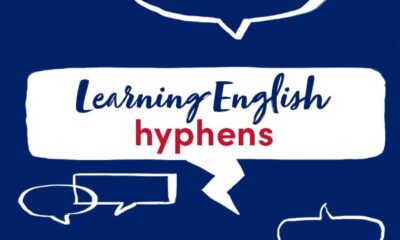For this week’s blog, our subject is the French verb entendre. Before we delve into the details of how to use it, first you need to know how to pronounce it. Listen to the audio clip below:
function playAudio(url) { new Audio(url).play(); }Did you hear how it sounds? While the pronunciation of the word doesn’t seem to have anything in common with its English translation, the action of listening to the clip certainly does! The verb entendre means to hear. It follows the conjugation pattern of regular -re verbs in French, which is good news for learners.
Let’s see some examples of entendre in use:
Je ne peux pas vous entendre. I can’t hear you.
Il n’a pas entendu la sonnerie. He didn’t hear the alarm.
Parlez plus haut s’il vous plaît ! Mon père n’entend pas très bien. Speak louder please! My dad doesn’t hear very well.
entendre dire que… to hear that…
entendre parler de… to hear of/about…
While its main translation is to hear, this verb does have another sense. This translation concerns the idea of understanding and meaning:
entendre à quelque chose to know about something; to understand something
entendre que… to mean that…
Avant de leur apprendre, ses grands-parents n’entendaient rien aux ordinateurs. Before teaching them, her grandparents didn’t know anything about computers.
Il ne faut pas le répéter, j’entends bien ce que tu veux dire. You don’t need to repeat it, I understand perfectly well what you mean.
Qu’entendez-vous par là ? What do you mean by that?
While entendre has fairly clear-cut translations as a standalone verb, it has a completely different meaning in its reflexive form, s’entendre. If you need a refresher on these types of verbs, check out our Easy Learning French Grammar page on using reflexive verbs.
s’entendre (avec quelqu’un) to get along or to get on (with someone)
La plupart du temps, nous nous entendons très bien. We get on really well most of the time.
Be careful when translating the reflexive form though, as it’s sometimes closer to the context of the first translation we looked at, about hearing or something being audible. For example:
s’entendre to be heard; to hear each other
Ça s’entend. You can hear it.
Vu qu’il y avait beaucoup de bruit, on ne s’entendait pas du tout. As there was a lot of noise, we couldn’t hear each other at all.
In a way, the translations of this verb sum up the actions you know fairly well from being a French language learner. Hearing a word and understanding its meaning is a big part of what you’re doing – keep it up!
Written by Holly Tarbet, freelance copywriter and editor.
All opinions expressed on this blog are those of the individual writers, and do not necessarily reflect the opinions or policies of Collins, or its parent company, HarperCollins.



